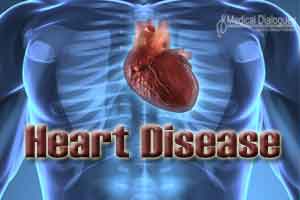- Home
- Editorial
- News
- Practice Guidelines
- Anesthesiology Guidelines
- Cancer Guidelines
- Cardiac Sciences Guidelines
- Critical Care Guidelines
- Dentistry Guidelines
- Dermatology Guidelines
- Diabetes and Endo Guidelines
- Diagnostics Guidelines
- ENT Guidelines
- Featured Practice Guidelines
- Gastroenterology Guidelines
- Geriatrics Guidelines
- Medicine Guidelines
- Nephrology Guidelines
- Neurosciences Guidelines
- Obs and Gynae Guidelines
- Ophthalmology Guidelines
- Orthopaedics Guidelines
- Paediatrics Guidelines
- Psychiatry Guidelines
- Pulmonology Guidelines
- Radiology Guidelines
- Surgery Guidelines
- Urology Guidelines
New gene discovery may help treat cancer, heart disease: study

Singapore : Researchers have discovered a new gene that controls blood vessel formation, an advance that may not only help in development of anti-cancer therapies but also prove useful in diabetic eye and heart diseases.
Blood vessels form a network throughout the body to deliver the nutrients necessary to keep the tissues and organs alive and healthy.
The formation of this network is controlled by a process called angiogenesis, researchers said.
Angiogenesis inhibition is commonly targeted in cancer treatment development that aims to starve tumours of the nutrients necessary for their survival, they said.
In the heart, increasing angiogenesis can help heart pump function.
For the first time, scientists from Duke-NUS Medical School in Singapore uncovered a role for the gene, Wars2, in the process of angiogenesis and confirmed the importance of Wars2 for angiogenesis in rats and zebrafish.
"Using different genetic techniques, we inhibited Wars2 function in both rats and zebrafish, and the resulting animals showed impairment of blood vessel formation within the heart and in the rest of the body," said Mao Wang from Duke-NUS.
To confirm the involvement of Wars2 in angiogenesis, researchers increased the effect of Wars2 and showed that blood vessel formation was enhanced.
Specifically, they were able to determine that Wars2 plays an important role in supplying sufficient endothelial cells, the building blocks of blood vessels, for angiogenesis.
"Angiogenesis is vital for supporting life and providing nutrients to all parts of the body," said Stuart Cook from Duke-NUS.
"Finding a way to control angiogenesis not only provides a target for the development of anti-cancer therapies, but may also prove useful in similarly starving abnormal blood vessel growth elsewhere in the body, like in diabetic eye disease," Cook said.
Wars2 may be a possible new drug target for cancer and heart disease, researchers said.
The findings were published in the journal Nature Communications.

Disclaimer: This site is primarily intended for healthcare professionals. Any content/information on this website does not replace the advice of medical and/or health professionals and should not be construed as medical/diagnostic advice/endorsement or prescription. Use of this site is subject to our terms of use, privacy policy, advertisement policy. © 2020 Minerva Medical Treatment Pvt Ltd